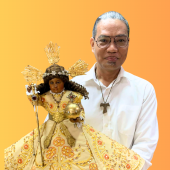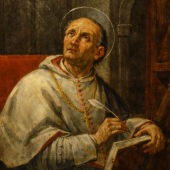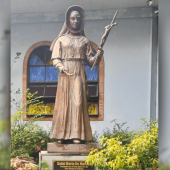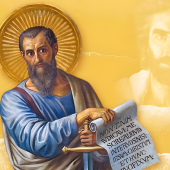St. Roch: A Tale of Faith, Suffering, and Man’s Best Friend
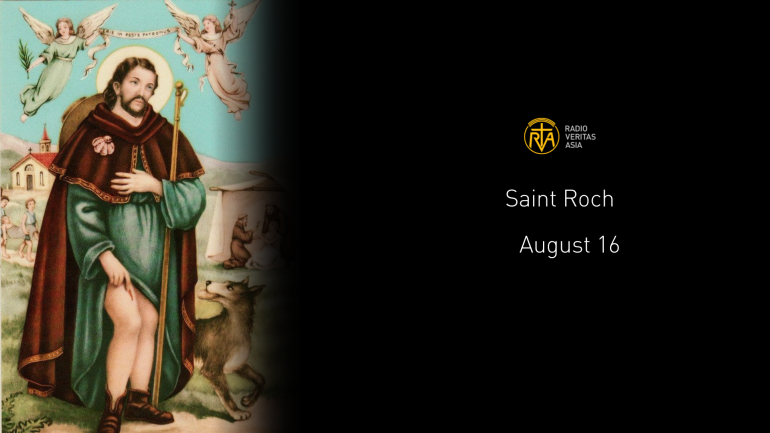
The Catholic Church celebrates the feast of St. Roch on August 16.
St. Roch is venerated as the patron saint of dogs, dog owners, knee ailments, surgeons, the infirm, bachelors, afflicted livestock, and as a powerful protector against cholera, plague, skin diseases, contagious illnesses, pestilence, and epidemics.
A nobleman from Montpellier, France, St. Roch was born with a birthmark in the shape of a cross on his chest. After the death of his parents, he renounced his inheritance, entrusted the governance of the city to his uncle, and embraced the life of a mendicant pilgrim.
Unburdened by worldly affairs, he joined the Third Order of St. Francis. Clad in the pilgrim’s garb, he set out for Rome. Passing through Acquapendente, Italy, he found the town devastated by the bubonic plague, also known as the Black Death.
In the 14th century, this pandemic swept across Europe, killing millions, possibly half of the continent’s population.
Undeterred by the risk to his own life, St. Roch remained in the afflicted town, caring for the sick. Miraculously, he did not contract the disease. He healed many by blessing them with the Sign of the Cross, continuing his works of charity until the outbreak subsided. He then resumed his pilgrimage, with similar healings reported in every town he visited on the road to Rome.
Later, in northern Italy, St. Roch developed a lesion on his leg, a sign that he, too, had fallen victim to the deadly affliction. Rather than burden others, he entrusted his fate to God and withdrew to a forest to await his death.
There, a nobleman’s hunting dog providentially discovered him. The dog brought him bread each day and licked his wounds, aiding his recovery.
When the dog’s master searched for his missing companion, he found it in the forest tending to the holy pilgrim. Grateful, the nobleman cared for St. Roch until his health was restored.
Returning to Montpellier, St. Roch found the city in turmoil. Concealing his identity, he lived quietly, but was suspected of being a spy. His own uncle, failing to recognize him, had him imprisoned.
According to legend, angels comforted him during his five years of incarceration. As death approached, St. Roch requested a priest for the final sacraments. Upon entering the cell, the priest found it bathed in a divine light, with the prisoner surrounded by a radiant glow. At that moment, a tablet appeared on the wall, inscribed in golden letters by an angelic hand, declaring St. Roch’s name and promising that all who sought his intercession would be delivered from the plague.
St. Roch died in prison, but his legacy endures as a testament to unwavering faith, compassion, and selfless service, a beacon of hope across the centuries.
It is also said that the phrase “man’s best friend” traces its origins to St. Roch’s story. In his darkest hour, a dog not only brought him food and water, but also offered loyalty, comfort, and companionship, healing not just his body, but also his spirit.
Radio Veritas Asia (RVA), a media platform of the Catholic Church, aims to share Christ. RVA started in 1969 as a continental Catholic radio station to serve Asian countries in their respective local language, thus earning the tag “the Voice of Asian Christianity.” Responding to the emerging context, RVA embraced media platforms to connect with the global Asian audience via its 21 language websites and various social media platforms.









